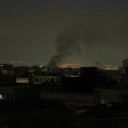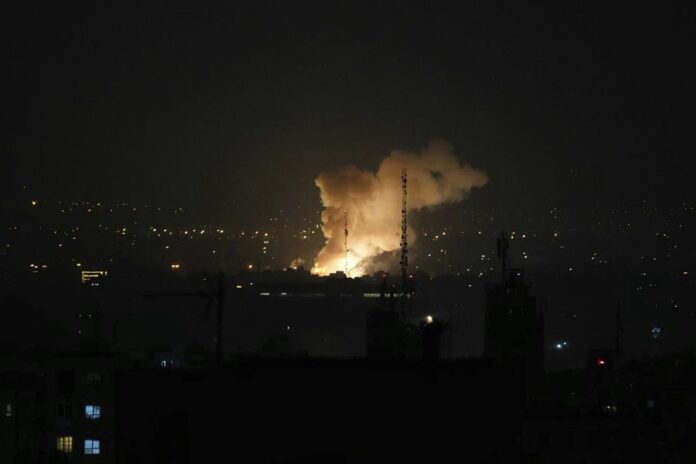Israel Targets Over 100 Sites in ‘Operation Rising Lion’
Israel launched one of its most expansive air operations against Iran, targeting over 100 strategic locations including missile storage depots, command centers, and uranium enrichment facilities in Natanz, Tehran, Hamedan, and Tabriz. The operation resulted in significant destruction and the deaths of top military leaders.
Among those confirmed dead were Revolutionary Guards Commander-in-Chief Hossein Salami, Aerospace Force head Amirali Hajizadeh, and Armed Forces Chief of Staff Mohammad Bagheri. Several nuclear scientists were also reported killed, according to Iranian media.

Iran Promises Response That Will Make ‘Enemy Regret’
President Masoud Pezeshkian condemned the strikes in a national address, vowing that the Islamic Republic “will not remain silent” and that Israel will “regret its foolish act.”
“The Iranian nation and the country’s officials will not remain silent in the face of this crime, and the legitimate and powerful response of the Islamic Republic of Iran will make the enemy regret its foolish act,” he said on state television.
Supreme Leader Ayatollah Ali Khamenei labeled the Israeli assault as a “crime” and warned of “a bitter, painful fate” awaiting the Zionist regime. “The powerful arm of the Islamic Republic’s Armed Forces won’t let them go unpunished,” he declared.
Trump Warns Iran: ‘Make a Deal Before It’s Too Late’
Former US President Donald Trump issued a warning via Truth Social, urging Iran to return to negotiations: “There has already been great death and destruction, but there is still time to make this slaughter… come to an end.”
“Iran must make a deal, before there is nothing left… JUST DO IT, BEFORE IT IS TOO LATE,” Trump wrote, reiterating that Iran “cannot have a nuclear bomb.” He also confirmed in a Fox News interview that he had advance knowledge of the Israeli strikes.
US Secretary of State Marco Rubio said, “We are not involved in strikes against Iran and our top priority is protecting American forces in the region,” while also warning Tehran against targeting US assets.
Mass Casualties, Infrastructure Damage Reported
Iran’s Red Crescent confirmed dozens of civilian casualties, including women and children. More than 95 people were injured across 12 provinces. The Natanz facility, a centerpiece of Iran’s nuclear program, suffered substantial damage. Local media reported widespread power outages and infrastructure collapse in several cities.
Pakistan, UK, and Others React Strongly
Pakistan’s Foreign Office condemned the Israeli assault as “unjustified and illegitimate,” asserting Iran’s right to self-defense under Article 51 of the UN Charter. It called on the international community to hold Israel accountable and prevent further escalation.
The United Kingdom distanced itself from the Israeli action, with reports confirming Britain will not provide military protection to Israel in this instance. Prime Minister Keir Starmer urged both sides to de-escalate and pursue diplomacy.
UN, Global Leaders Call for Restraint
UN Secretary-General António Guterres voiced “deep concern” and called for “maximum restraint” amid fears of wider war. The UN Security Council is set to convene following a request from Iran to address what it called a “declaration of war.”
Saudi Arabia denounced the “blatant Israeli aggression,” while Australia, New Zealand, Japan, and Oman echoed calls for peace. Oman described the Israeli operation as “dangerous and reckless.”
New Zealand’s Prime Minister Christopher Luxon warned of a high risk of miscalculation, and Japan emphasized the need to protect civilians and diplomats in the region.
Outlook: Middle East on the Brink
As Iran signals a multifaceted response and Israel remains on high alert, global powers watch with growing concern. Whether through diplomacy or further strikes, the coming days may define the next chapter in Middle East geopolitics.



